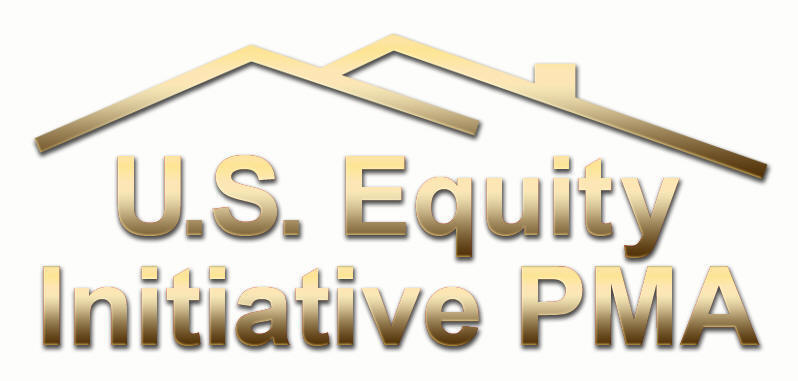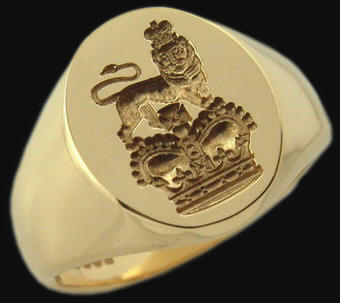Ignorance is bliss? Even in the Courts
Mix n Match
When one law (E-SIGN) says no to another law
(UCC), and the other law (UCC) knows not of that law (E-SIGN)
referencing it, except in certian portions, which one of the laws govern
the other portions (UCC)?
Does this question make you think, or did it seemingly confuse you?
To make more sense of this question, you should
first take the time to read
New York Community Bank v. McClendon, in the NY area, then attempt to
understand the E-SIGN act. If you think the UCC is involved because the
court mentioned it, you are partially right, or, you still don't
understand E-SIGN?
It could be possible to create an enote, and it could be possible to
electronically sign the enote, and it could be possible to transfer an
enote. If you understand E-SIGN, the enote is only between the parties
whom agree to electronically sign an electronic contract. Nonetheless,
enotes are not goverend by Article 3, nor Article 9, of the Uniform
Commercial Code. Get that through you head. Physical promissory notes
are paper promises, physically signed, not electronically.
I am not going into the two instruments involved in a secured real
estate transaction (promissory note & deed of trust) because the topic
is already written and posted on OurLemon.com. I am attempting to help
you understand how mixing laws to match the seemingly appropriate
outcome seem to be a thing nobody catches? Though the court may be
correct in its misunderstanding, this is a good example to see how the
court seemingly mixed up the laws, when there was only one law to look
at. E-SIGN.
I am not attempting to challenge the validiy of the enote in this explanation. It's already written about in other articles on OurLemon.com. This is about clearing up some confusion in regards to "governing" law.
Here is an excerpt from the opinion; New York Community Bank v. McClendon
Regarding the eNote transfer history submitted by the plaintiff, an eNote is a "transferable record," as that term is defined under 15 USC § 7021(a)(1). "Except as otherwise agreed, a person having control of a transferable record is the holder" (15 USC § 7021[d]). New York's Uniform Commercial Code also defines "holder" as "the person in control of a negotiable electronic document of title" (UCC § 1-201[b][21][C]).
Do you undersand E-SIGN? Do you see a problem?
Hint:
New York's Uniform Commercial Code also
defines "holder" as "the person in control of a negotiable electronic
document of title" (UCC § 1-201[b][21][C]).
Did you find it? If you still don't understand E-SIGN, you probably do
not see a problem, do you? Maybe you should take a look at 15 usc
7003(a)(3). Did you look at it?
What does E-SIGN govern? Electronic signatures, and electronic contracts
alleged to be enotes, a.k.a. transferable records. What does not apply
to E-SIGN?
Hint; The Uniform Commercial Code,
as in effect in any State, other than
sections 1–107 and 1–206 and Articles 2 and 2A.
Ok, back to the court opinion.
New York Community Bank v. McClendon
If E-SIGN excludes UCC 1-201, how did the men, or
women in the robes include that certain law to support such a statement
according to governing law, which is E-SIGN?
I honestly do not believe these men, or women are that ignorant.
Nonetheless, people need to pay more attention to the laws that govern
the electronic contracts. E-SIGN.
Did I miss anything? Nope. Did you miss anything? I believe you did, but I will give you the benefit of the doubt.
Again, in the opinion, let us look at the same statement portion for understanding how the court misinterpreted the law, or did the "mix and match" to fit the outcome. Look at the first "Hint" I gave above. So how does the court support the UCC 201 thing when 15 USC 7003(a)(3) excludes 1-201? Look at the second "Hint" I gave above. Now go and read 15 USC 7003.
You may also ask questions about how the transferable record (enote) is allowed to be used in a court of law as a Chapter 7, "Documens of Title" that is excluded from E-SIGN? ? Again, look at 15 USC 7003(a)(3). Nevertheless, you can see by the courts admission, MERS members are using "Documents of Title", not real estate transactions in the way you've been thinking.
Had the courts honestly understood the governing law, don't you think the outcome would be a bit different? I do.
If you understand E-SIGN, you should be able to
put this crime scene together for yourself, we've given you a free
understanding of it. Many have used it for their gain, and that's ok.
They reap their rewards. They still don't understand it. If the world
did, there would be a new day coming.
Question; If a deed of trust is a physical paper contract, how is it
electronically signed?
Ponder this; If an electronic deed of
trust is not required to be filed in public records, why are alleged
assignments reflecting the electronic deed of trust recorded? If you
don't understand E-SIGN, go learn the definitions.
And if, as in
Texas, the county clerk is not required to accept real estate
filings containing electronic signatures, why do county clerks accept
electronic real estate transactions? Why would they burden themselves
with worthless recordations, unless they too do not understand E-SIGN?
Here is the thing; If you do not go and learn these laws, you will only
know what someone else seems to think they know. And if the thought of
not learning comes rolling around in that p-brain of yours, you only
defeat yourself. Nobody else can prevent you from learning something,
whether it is considered useless, or not, you can learn anything you
want to learn.
And, if you read E-SIGN first, you will probably realize there are
really no other laws to look at. E-SIGN is a beast of its own making. It
does not need the previous negotiable commercial laws, it says so
itself. Look at 15 usc 7003.
What if?
What if the pro-se had honestly understood
E-SIGN, would his approach be different?
I mean no offense to the pro-se, it happend to me. The real problem is
the courts ignorance. I only offer up something mentioned in the
"footnotes". In
Turner v. AMERICAHOMEKEY, INC., Dist. Court, ND Texas 2012, the
courts usual "monkey see, monkey do" opinion which favors the MERS
member in seemingly invalid ways. But if this "judicial notice" tactic
brought court awareness to the deed of trust contract by the MERS
member, would it not be advantageous in the same manner used toward the
MERS member? The Deed says the parties would follow all applicable laws.
If the "borrower" were to agree to use MERS, according to its FAQ's
website, and according to E-SIGN, the governing law of MERS electronic
transactions, there would need to be a legally enforceable agreement to
bind the "borrower" to MERS. So, hypothetically, "all applicable laws"
would mean some sort of evidence of an elecronic signature by the
"borrower" would be required by MERS, or is members? Good question?
15 USC 7001(h)
Electronic agents
A contract or other record relating to a transaction in or affecting
interstate or foreign commerce may not be denied legal effect, validity,
or enforceability solely because its formation, creation, or delivery
involved the action of one or more electronic agents so long as the
action of any such electronic agent is legally attributable to the
person to be bound.
If E-SIGN is the law that governs MERS, why do the courts not question the grantors signature in regards MERS? How is that person legally bound to MERS in any form or fashion without an elecronic signature? Physical signatures are not allowed as valid evidence, for proof of electronic signatures according to E-SIGN, the law that governs, which is apparently not the opinion of the court. Isn' the court supposed to understand the law to determine the outcome, not misunderstanding of the law due to their ignorance? Why are simple electronic contract laws not upheld?
You do know a dead corp does have many names? Smelly, Stinky, Nasty, Putrid, even MERS. It is not the outside you look at, it is the inside which reveals the truth.
Why?
Why are commercial laws that are excluded from the electronic law being included by the courts? Again, look at 15 USC 7003(a)(3). Is someone being paid off? Turning a blind eye? And these men/women of alleged justice, don't even realize they too are a victim of this crime. I am not against you, I am with you.
While you are making excuses, I've got some questions to ask no matter how smart you think you are. Explain to me what a secured debt is? For example, a residenial mortgage loan is a secured debt, right? The lien, <deed of trust> attaches to the promissory note, correct? This is considered a "secured" debt, right? The note secured by a mortgage, right? Two (2) separate "instruments", right? That is why the deed of trust is "attached" to the note, right? If all the information was placed into the note, the note would probably be in violation of law, right? Probably not completely valid in regards to Article 3 of the UCC, right? That is why there are two instruments, right? This "Secured mortgage" is what is sold on the stock market, right? Are we on the same page? So, if this is cleared up, let's move to your next set of questions?
According to E-SIGN, two parties can agree to contract "electronically", right? The electronic contract, according to E-SIGN would be defined as a "transferable record", right? According to the courts, the transferable is considered a note, right? This note, according to the courts, would be a singular contract, which is electronic, and governed by E-SIGN, and called a transferable record, right? Do I need to go further wih questions? Ok.
If you still can' understand it, why are you a judge? And you were supposed to be a lawyer? Are you that stupid? Ok, then how do you "secure" a transferable record, besides password protecting it? If you have the whole electronic contract, in one form, which alleges to be both "note" and "deed of trust", and it is called a note, what law supports it? E-SIGN? So, how did the deed of trust become attached to the note to invoke the "secured" status of a residential mortgage loan? Article 9 is not an argument, don't try it, look at 15 USC 7003(a)(3). I suppose I could go on, and on about this. I can only pray you wake your sleepy little selves up soon.
You people screwed yourselves......
As long as the world is kept busy being divided, nobody will catch on to this crime. It is the art of war used by men of iniquity all over the world.
Namaste,


